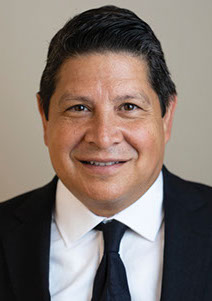
Break Down the Wall Between Us
ABOUT US |
With Hispanic Heritage Month in a rearview mirror fogged by an ominous cloud of an anti-Latino, anti-immigrant, anti-“other” atmosphere promulgated by many of our fellow Americans, our own community can’t continue to ignore the divisiveness of our own doing.
We are at about 60 million and of all communities, ours is among the most diverse. It’s what makes our population so vibrant, but also so complex. We are like EVERYONE across all spectrums. That is what makes us special. Latinos actually reflect all of America and like America, we need to better understand our differences, celebrate our commonalities, and move forward more powerfully together.
Unfortunately, Latinos have been the target of verbal and physical attacks culminating in the El Paso murders.  According to the Pew Research Center, about six-in-10 U.S. Latinos say they have experienced discrimination or been treated unfairly because of their race or ethnicity. Almost six-in-10 Latinos say race relations are generally bad. Experiences with discrimination more common for Latinos with darker skin. A Harvard study from three years ago found one-third of Latinos say they were discriminated against when applying for jobs, on equal pay, or when considered for promotions.
According to the Pew Research Center, about six-in-10 U.S. Latinos say they have experienced discrimination or been treated unfairly because of their race or ethnicity. Almost six-in-10 Latinos say race relations are generally bad. Experiences with discrimination more common for Latinos with darker skin. A Harvard study from three years ago found one-third of Latinos say they were discriminated against when applying for jobs, on equal pay, or when considered for promotions.
Being Hispanic is formally considered an ethnicity, not a race. According to the U.S. Census Bureau, Hispanics identify as white (65 percent), “some other race” (27 percent), mixed race (5 percent), black (2 percent), indigenous (1 percent) and Asian (0.4 percent), among other designations. You can imagine that beyond these Census designations, as Latinos, our own identities are much more nuanced and complicated. We are of all religions, races, sexual orientations, etc. We are everyone and everyone is us. Yet we are often made to feel like “the other” by many of our fellow Americans.
And how we are often made to feel should serve as a forceful guide on how we, as Latinos, should not treat others, including members of our own community.
Yet we continue to stoke racism, sexism, anti-Semitism, Islamophobia, homophobia, in addition to bias against our indigenous, disabled, and other valuable members of our own Latino community.
How many times have we heard our fellow Latinos and Latinas spew divisive language about others in our community who don’t fall into their box of what a Latino should be? How about our own families? Let’s face it, even when we are lovingly referring to other Latinos with no malintent, we still use words that can be offensive. Like calling anyone with Asian features “la Chinita” even if they are of Korean or Filipino descent or even not of Asian descent. How about calling anyone who is dark-skinned “el negro” or someone who is indigenous “india” or someone who is of Arab descent “el Turko” or someone who is disabled “el renko,” and I don’t even want to get started with the names Latinos call our LGBTQ community.
How about the shaming or ostracizing Latinos for being too fair-skinned, having a name that isn’t traditionally Latino or for not speaking any Spanish or not speaking Spanish well enough. That happens a lot …
I ask, if we’re so against building a wall, then why do we build so many walls between us as Latinos? Much like America, we are not immune from having these discriminations, narrowmindedness, and fear-of-the-other within our own community. Before we fight bigotry on behalf of our community, we need to fight bigotry inside of our community. I urge us to stand up and say:
I don’t ever want to hear that someone is too black, too indigenous, too Asian, or too white.
I don’t want to hear that someone is too gay, too lesbian, too trans, too bi, or too pan, or too any other sexual orientation.
I don’t want to hear that someone is too Jewish, too Muslim, too Buddhist, too Christian, too atheist, or any other belief system.
I don’t want to hear that someone too disabled, or too old, or too young, or has a mental illness.
I don’t want to hear that someone is too rich or too poor or too undocumented, too educated or too uneducated.
I don’t want to hear that someone isn’t Latino enough because they don’t speak a word of English, or a word of Spanish, or if they speak Spanish badly like I do, or have a name that isn’t traditionally Latino.
I also don’t want to hear negative talk about someone’s heritage because they’re from other Latin American country, Spain or anywhere else.
We also need to welcome our brothers and sister who aren’t even of Hispanic descent but love and appreciate our culture so much that they take part in the celebration and la lucha together with us. I’ve always said that no one should define us as Latino. We need to define ourselves. But that definition needs to be broader. And more inclusive. As Latinos.
Antonio Tijerino is President and CEO of the Hispanic Heritage Foundation.